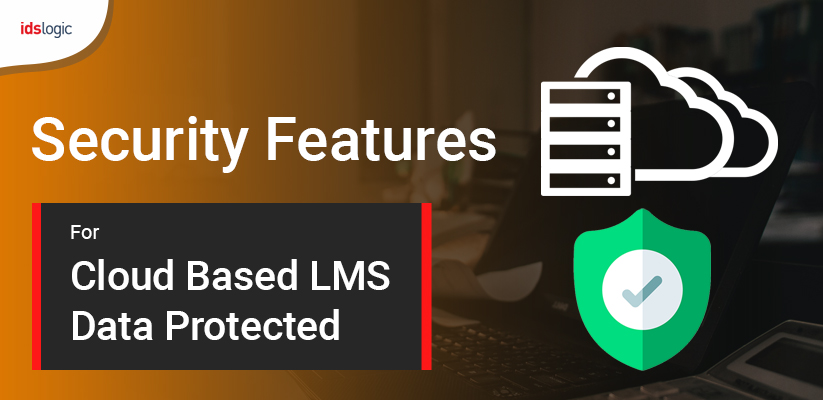
Security Features to Keep Your Cloud Based LMS Data Protected
One of the top concerns of every e-learning organization is the safety of the data as such websites often gather sensitive information that are usually vulnerable. For academic institutes and corporates that rely on cloud based LMS software for continuous learning and development, cyber security is their focus and if they are not keeping their LMS protected and secured, then they may be risking their important data. So, whether the organization is training people internally or externally, the LMS security is highly crucial.
Is Your Data Safe in a Cloud Based LMS Development Solution?
Cloud based LMS solutions have become an attractive option for all the e-learning service providers as there is no need to maintain the infrastructure, no handling of latest technology and all these have reduced the overall cost of the organization. For small projects and companies without a high budget in e-learning, the cloud option makes a lot of sense. But even if you choose a cloud based LMS there is a significant risk associated with the data.
Since you have trusted your cloud LMS service provider and know even less about the security practices, you may have to face some security risks, if you are not aware of the measures that need to be taken. Data breaches should be considered seriously and all possible measures need to be taken to stay safe.
Why is this Online Data Security Important?
Physical security is very easy to understand. If you keep your house unlocked, then people can steal things from you. This is very true. But proper security guards, locked gates, security cams can help to stay safe. Similarly, online security is essential so that your data regarding your online courses are safe, or else:
- Your valuable business data can be stolen
- Online properties can be accessed by unauthorized users or have operations disrupted
Now, how serious the damage is, depends on the extent and the kind of attack. Even a simple hacking of your site can expose your employee and student information and also leak business secrets, which can create a havoc with the training program.
LMS Security Features that Can Help to Keep Your Data Safe:
Advanced Password Authentication:
When the users log in your LMS application, their names and passwords are usually saved to a remote access server in a file. There are different protocols that are involved to ensure that the data is accessed only by authorized user and online learners are able to make only three attempts before they can access the system. Creating a strong password authentication system will help to prevent the hackers from guessing the password and in some cases, the users must type the codes displayed to prove that they are not a bot.
Also Read: Integration of H5P with Moodle LMS: A Great Match
Access through Secured Connection:
An LMS development company can be hired to offer a secured connection to ensure that all the data that is exchanged between the LMS servers and the user’s PC are encrypted securely. To attain the most, the LMS service providers can make use of SSL /HTTPS connection via some wildcard certificate which should have the following characteristics:
- The connection must be encrypted
- It must be issued by some third party certification authority like the Geotrust
Using an Anti-Spam:
This LMS security feature helps to prevent any spam that has the ability to capture the user data and sensitive information. This involves malware, phishing and even ransomware. With an antispam installed, online learners need not worry about fraudulent spammers who can get hold of their contact details and send some potentially dangerous emails.
SSO- Using a One Login Rule for All:
After considering SSL, the next step is to consider a single sign on. This means that you will have only one username and password to connect to a bunch of online websites and services. Like if you are using Facebook or Google to login websites other than Facebook and Google, then you may use the SSO as it will allow you to have a centralized authentication management across your online properties. Your IT department can also enforce similar security policies and restrictions for your corporate intranet and your training portal.